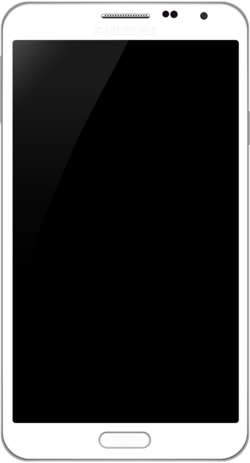 | |
 Samsung Galaxy Note 3 Neo in White | |
| Also known as | Samsung Galaxy Note 3 Lite |
|---|---|
| Brand | Samsung |
| Manufacturer | Samsung Electronics |
| Type | Phablet |
| Series | Galaxy Note |
| Family | Samsung Galaxy |
| First released | February 1, 2014 |
| Successor | Samsung Galaxy Note 10 Lite |
| Related | Samsung Galaxy S4 Samsung Galaxy S4 Active Samsung Galaxy S4 Mini Samsung Galaxy S4 Zoom Samsung Galaxy Note 3 Samsung Galaxy Gear Samsung Galaxy Round |
| Form factor | Slate |
| Dimensions | 148.4 mm (5.84 in) H 77.4 mm (3.05 in) W 8.6 mm (0.34 in) D |
| Weight | 162.5 g (5.73 oz) |
| Operating system | Original: Android 4.3 "Jelly Bean" Current: Android 5.1.1 "Lollipop" Unofficial: Android 7.1.1 "Nougat" Via LineageOS 14.1 |
| System-on-chip | Samsung Exynos 5 Hexa 5260 (LTE and 3G version) Qualcomm Snapdragon 400 (Dual Sim version) Qualcomm Snapdragon 800 (South Korea version) |
| CPU | Hexa-core 1.7 GHz Cortex-A15 and 1.3 GHz Cortex-A7 (LTE and 3G version) 1.6 GHz quad-core Snapdragon 400 (Dual Sim version) Qualcomm Krait 400 MP4 2.3 GHz (South Korea version) |
| GPU | ARM Mali T624MP6 GPU (LTE version) Adreno 305 (Dual Sim version) Adreno 330 450Mhz (South Korea version) |
| Memory | 2 GB LPDDR3 |
| Storage | 16/32 GB flash memory |
| Removable storage | microSDXC up to 64 GB |
| Battery | 3,100 mAh User replaceable |
| Rear camera | 8-megapixel, camera with autofocus, BSI, 1080p |
| Front camera | 2-megapixel |
| Display | 5.5 in (140 mm) HD Super AMOLED 267 ppi (1280×720) (PenTile matrix) (16:9 aspect ratio) with Gorilla Glass 3 |
| Connectivity | |
| Data inputs | |
| Development status | Discontinued |
| SAR |
|
| Other | Accelerometer, gyroscope, Hall effect sensor, magnetometer, proximity sensor, RGB light sensor |
The Samsung Galaxy Note 3 Neo (also known as the Samsung Galaxy Note 3 Lite) is an Android-based phablet smartphone produced and developed by Samsung Electronics. The Galaxy Note 3 Neo was unveiled by Samsung Poland on February 1, 2014, with its worldwide release later in that month. Serving as a lower priced version of the Samsung Galaxy Note 3, the Note 3 Neo was designed to have the same lighter, more upscale design than previous iterations of the Galaxy series (with a plastic leather backing and faux metallic bezel) first supported by its bigger sibling, and to expand upon the stylus and multi-tasking oriented functionality in its software, which includes the new navigation wheel for pen-enabled apps, along with pop-up apps and expanded multi-window functionality, while lacking more sophisticated functionality such as 1080p video recording and USB 2.0 port.
Contents
The Galaxy Note 3 Neo is the only smartphone in its series to be equipped with temperature and humidity sensors and touch screen able to detect a floating finger, all which first featured on the Galaxy S4 released earlier that year.
Samsung sold 5 million units of the Galaxy Note 3 Neo within its first month of sale [2] and broke 10 million units sales in just 2 months. [3]